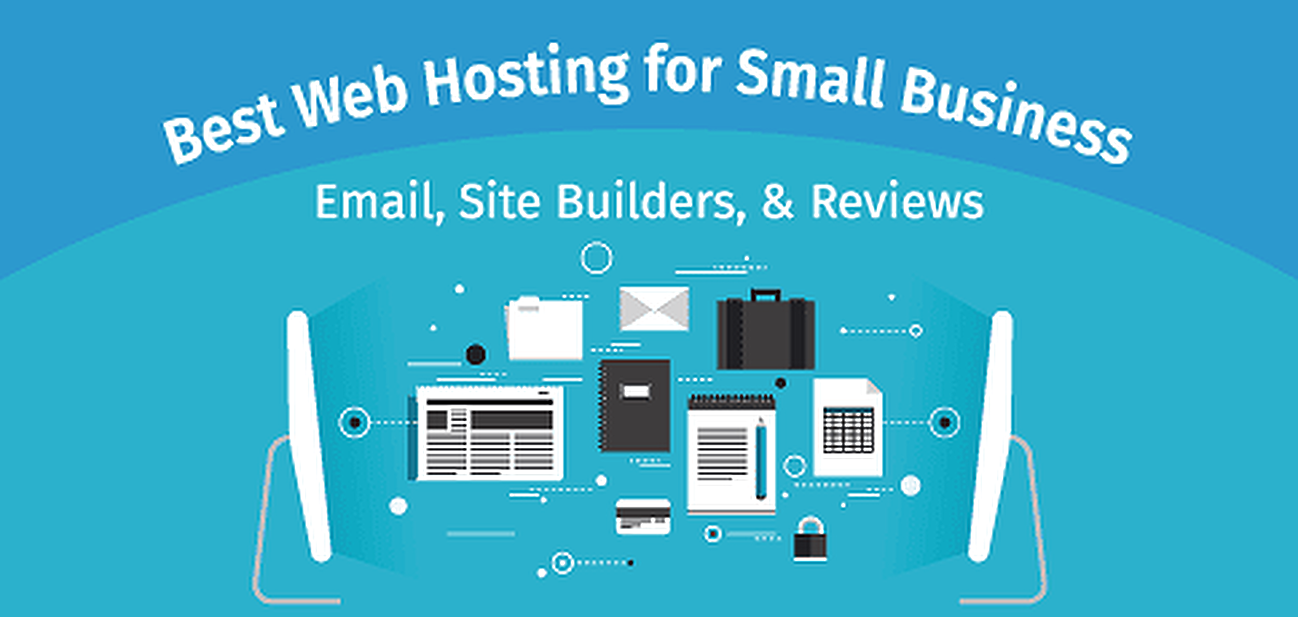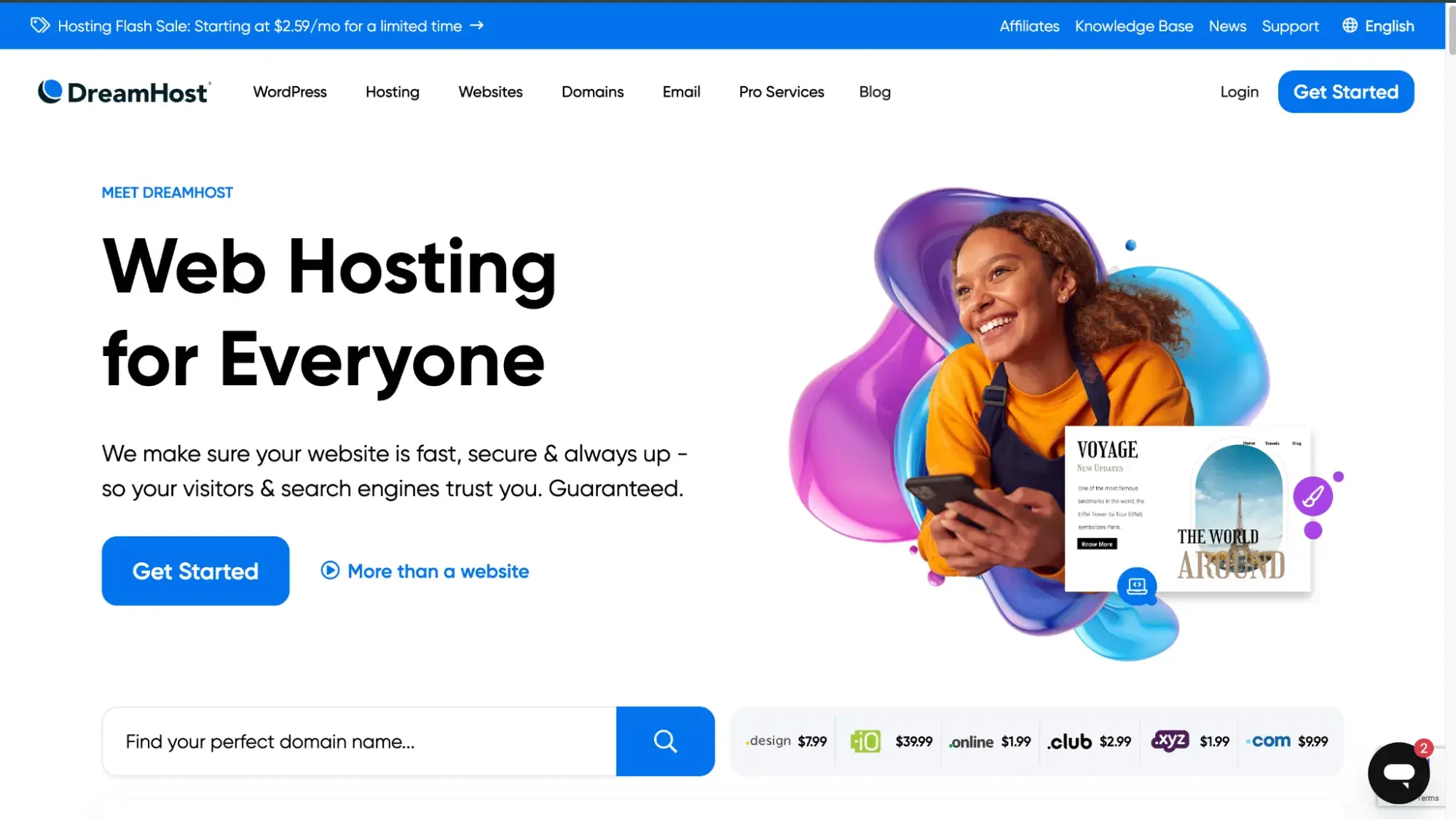Website and email hosting are essential for small businesses. They ensure online presence and effective communication.
Small businesses need reliable hosting to thrive in a digital world. Understanding website and email hosting can be challenging. Many small business owners might feel overwhelmed by technical jargon. But it’s crucial for growth. A professional website attracts customers. Efficient email hosting ensures smooth communication.
Both are vital for building trust. Without them, small businesses might struggle. They risk missing out on potential clients. In this blog, you’ll learn what hosting is. Why it matters. And how to choose the right option. We aim to simplify the process. Make it understandable. Accessible. So you can focus on what you do best. Running your business. Ready to explore the world of hosting? Let’s get started.

Credit: www.hostingadvice.com
Choosing The Right Hosting Provider
Selecting a reliable hosting provider ensures smooth website and email operations for small businesses. A good choice supports growth, provides security, and offers helpful customer service. Consider factors like cost, features, and scalability to meet business needs effectively.
Choosing the right hosting provider is crucial for your small business's success. A reliable provider ensures your website and email systems run smoothly, helping you maintain a professional image and seamless customer communication. But with numerous options available, how do you make the best choice?Factors To Consider
When selecting a hosting provider, you need to weigh several factors. Reliability is key. You want a provider that guarantees uptime so your website and email are accessible at all times. Cost is another crucial element. As a small business, budget constraints are real, but don't just opt for the cheapest option. Balance affordability with quality. Consider the support offered. Providers with 24/7 customer service can be lifesavers when technical issues arise. Scalability matters too. As your business grows, your hosting needs will evolve. Choose a provider that can grow with you.Comparing Popular Providers
Let's take a look at some well-known hosting providers. GoDaddy is famous for its user-friendly interface and competitive pricing. It's a great choice if you're new to website hosting. Meanwhile, Bluehost is popular for WordPress sites, offering robust features and excellent customer support. HostGator stands out with its flexible plans and reliable uptime. If you're looking for powerful tools, SiteGround offers excellent security features and daily backups. Each provider has its strengths, but the right choice depends on your specific needs. So, which provider aligns best with your business goals? Consider your priorities and long-term plans. Making the right choice now can save you headaches later.Types Of Hosting Services
Small businesses often seek reliable hosting services for websites and email. Options include shared hosting, offering affordable solutions with limited resources. Virtual private servers provide more control and flexibility, ideal for growing needs.
Choosing the right hosting service for your small business is crucial. It impacts your website’s performance and reliability. With various types of hosting available, understanding the differences can help you make an informed decision.Shared Hosting
Shared hosting is like renting an apartment. You share resources with other websites on the same server. It's cost-effective and ideal for startups with limited budgets. Imagine hosting your website alongside others; it’s a great way to save money but comes with certain limitations. If your neighbor's site gets heavy traffic, it might slow down your site. Consider shared hosting if your site is just starting and doesn't yet need high-level resources.Vps And Dedicated Hosting
VPS hosting offers a middle ground. You get a virtual private server, which means dedicated resources without the high cost of a dedicated server. Picture it like owning a condo; you have your own space, but still share the building. You enjoy more control and better performance compared to shared hosting. This is perfect if your website is growing and you need more power. Dedicated hosting gives you an entire server to yourself. It's like owning a house where you make all the rules. With dedicated hosting, you enjoy maximum control and customization. It's ideal for large websites with significant traffic and high security needs. Think about whether your business is ready to handle the responsibility and cost of maintaining a dedicated server. Choosing the right hosting type can set your business on a path to success. Which hosting type aligns with your business goals and budget?Benefits Of Professional Email Hosting
Choosing professional email hosting can be a game-changer for your small business. It offers a host of benefits that can significantly enhance your operations and brand image. Imagine the confidence you can instill in your clients when your emails exude professionalism and security.
Improved Security
One of the biggest advantages of professional email hosting is enhanced security. Your business emails can become targets for hackers, risking sensitive data and client information. Professional hosts offer robust security features like encryption and spam filters. These tools can protect you from cyber threats that generic email services might miss.
Think about the peace of mind knowing your communications are secure. Security breaches can tarnish your reputation, but with professional hosting, you can reduce that risk significantly.
Branding Opportunities
Professional email hosting can elevate your brand image. Using a custom domain for your email address makes your business appear more credible. Instead of generic email addresses, your emails can proudly display your business name. This simple change can instill trust in your clients and partners.
Picture the impact of sending an email from your own domain rather than a free service. It shows that you are invested in your brand and care about how your business is perceived.
Professional email hosting provides more than just an email service; it strengthens your business identity. Are you leveraging this opportunity to its fullest potential?
Cost Considerations For Small Businesses
Choosing the right website and email hosting is crucial for small businesses. Costs can vary widely based on storage, features, and support. It's essential to balance affordability with reliability for seamless operations.
Cost considerations for small businesses are crucial when choosing website and email hosting. It's easy to get overwhelmed by the options, but understanding your budget and potential hidden costs can guide you to a smart decision. By weighing these aspects carefully, you can ensure your business runs smoothly without unnecessary financial strain. ###Budget-friendly Options
Small businesses often operate on tight budgets. Affordable hosting services can be a lifesaver. Look for providers offering starter packages that fit your current needs without overcharging for unnecessary extras. Many companies offer shared hosting plans, which are cost-effective. These plans allow multiple users to share the same server, reducing costs significantly. While this option is budget-friendly, it may not be suitable if you expect high traffic on your website. Consider hosting companies that provide discounts for long-term commitments. A yearly plan might seem expensive upfront, but it often saves you money compared to monthly payments. ###Hidden Costs To Watch
Even with budget-friendly options, hidden costs can creep up. Have you ever been drawn to a low initial price, only to find additional fees later? It's a common pitfall in hosting services. Look out for renewal rates. Many hosting providers offer low prices for the first year, then hike rates upon renewal. Understanding these terms upfront can prevent unwelcome surprises. Additional services like domain registration, SSL certificates, and backup services can add to your bill. Some companies charge for these features that others include for free. Always read the fine print and ask questions if you're unsure. Have you considered the cost of scaling? As your business grows, your hosting needs may change. Some services charge exorbitant fees for upgrading, while others offer seamless transitions. Planning for growth can save you from costly adjustments later. In your experience, have you found unexpected charges in your hosting services? Share your story with other small business owners—it might just save them from a similar fate.Setting Up Your Website
Setting up your website is a crucial step for your small business. It's like building a digital storefront that invites customers in and showcases what you offer. But where do you start? The journey begins with choosing the right domain name and installing a Content Management System (CMS) that fits your needs.
Domain Registration
Your domain name is your online identity. It should be easy to remember, reflect your brand, and ideally include keywords related to your business. Think of it as your business card in the digital world.
Consider using your business name as your domain. This makes it easier for customers to find you. You can check domain availability on platforms like GoDaddy or Namecheap. They offer user-friendly interfaces where you can search for and register your domain.
Remember, your domain is not just a web address; it's your brand's first impression. Choose wisely and consider purchasing variations to protect your brand.
Installing Cms Platforms
A CMS platform is like the engine of your website. It helps you create, edit, and manage your site's content without needing to write code. Popular options include WordPress, Joomla, and Drupal.
WordPress is a favorite among small businesses for its simplicity and flexibility. You can install it with just a few clicks using most hosting providers' one-click installation features.
Explore themes and plugins that enhance functionality and design. Many are free, but premium options offer more features. The right CMS can make managing your website easier and more efficient.
Have you ever struggled with a website that's hard to update? A good CMS solves that problem, allowing you to focus on growing your business. Why make things complicated when simplicity is an option?
Setting up your website isn't just about choosing a domain and installing a CMS. It's about creating a strong foundation for your online presence. What steps will you take to ensure your website serves your business effectively?

Credit: www.pipedrive.com
Email Hosting Setup
Setting up email hosting is crucial for small businesses. It ensures professional communication with clients. A reliable service supports smooth email operations, enhancing business credibility and efficiency.
Setting up email hosting for your small business might feel daunting, but it’s a crucial step for professional communication. A dedicated email setup not only adds credibility but also keeps you organized. Let’s break down the essentials, making it as straightforward as possible.Choosing Email Platforms
Selecting the right email platform is your first task. Consider platforms like Google Workspace or Microsoft 365. They offer robust features, including high storage capacity and excellent security. Think about your business needs. Do you need integration with other tools? Google Workspace might be ideal with its seamless connection to Google Drive and Calendar. If you're already using Microsoft products, Microsoft 365 could be the perfect fit. Budget is another factor. Compare the costs of different platforms. Some might offer a free tier, which can be sufficient for a small team.Configuring Email Accounts
Once you've chosen your platform, it's time to set up your email accounts. Start with creating email addresses for your team. Use a consistent format, like [email protected], to maintain professionalism. Don't forget to set up aliases. They help in organizing emails without needing multiple inboxes. For example, create an alias like [email protected] that redirects to your main email account. Ensure security by enabling two-factor authentication. This adds an extra layer of protection, keeping your business communications safe. Have you considered how email hosting can streamline your operations? With a professional setup, you’re not just sending emails—you’re building trust and efficiency. By tackling these steps, you set a solid foundation for your business's communication strategy. Are you ready to enhance your email setup and elevate your business interactions?Security Measures For Hosting
As a small business owner, safeguarding your online presence is crucial. Security measures for hosting are essential to protect your website and email data from threats like hacking and data breaches. These measures not only keep your information safe but also help maintain the trust of your customers. Let’s dive into some practical security practices you can adopt.
Ssl Certificates
SSL certificates are like digital padlocks for your website. They encrypt the data shared between your site and your visitors, preventing cybercriminals from intercepting sensitive information. Imagine visiting a website and seeing a warning that it’s not secure—would you feel confident sharing your details? Probably not. By adding an SSL certificate, you reassure your customers that their information is safe.
Google also favors websites with SSL certificates, boosting your search engine ranking. It's a win-win for security and SEO. Installing an SSL is straightforward, and many hosting providers offer them for free or at a low cost.
Regular Backups
Picture losing all your website data overnight due to a technical glitch or cyberattack. Regular backups are your safety net. They ensure you can quickly restore your website and email data without losing valuable information. Automate backups to save time and reduce human error.
Most hosting providers offer automated backup services, allowing you to schedule them daily, weekly, or monthly. Keep multiple copies of backups in different locations for added security. Have you ever faced a data loss situation? If you have, you know the relief a backup can provide.
Security isn't just about preventing attacks; it's also about being prepared for the worst-case scenarios. Are you taking the necessary steps to protect your business online? Implementing SSL certificates and regular backups can help you sleep easier at night, knowing your digital assets are secure. What other security measures do you think are vital for hosting?

Credit: www.neo.space
Scaling Your Hosting Needs
Small businesses need flexible hosting solutions for websites and email. Choose scalable hosting to meet growing demands. Ensure smooth performance without overspending.
Scaling your hosting needs is crucial for small businesses. As your business grows, your website and email hosting must keep pace. This ensures smooth operations and maintains customer satisfaction. Understanding how to plan for growth and upgrade hosting services is key.Planning For Growth
Every business aims to grow. It's essential to foresee hosting needs. Start by assessing current website traffic. Determine potential increases in visitors. Consider seasonal spikes or promotional events. Analyze email usage patterns. Evaluate storage needs for future data. Create a forecast with realistic expectations. This helps in choosing the right hosting package.Upgrading Hosting Services
Upgrading hosting services becomes necessary as you expand. Choose providers that offer scalable solutions. Look for flexible plans. Ensure easy transitions between service tiers. Check for added features like security enhancements. Consider options that offer improved performance. Faster load times boost user experience. Enhanced email services support larger teams. Keep an eye on cost-effectiveness. Balance price with the features offered.Frequently Asked Questions
What Is The Best Email Hosting Service For Small Businesses?
Gmail for Business, Microsoft 365, and Zoho Mail are top email hosting services for small businesses. They offer reliable performance, robust security, and user-friendly interfaces. Each provides unique features catering to business needs, such as collaboration tools, integrations, and customer support.
Choose based on your specific requirements and budget.
Can I Host My Website And Email Separately?
Yes, you can host your website and email separately. Choose different providers for hosting services. Ensure both services meet your specific needs for performance and security. Make sure DNS settings are correctly configured to link both services together.
What Is The Best Website Hosting For A Small Business?
Choose Bluehost for affordable small business hosting. It offers excellent customer support, reliability, and easy WordPress integration. Consider HostGator for scalable hosting plans and 24/7 service. SiteGround provides robust security features and fast performance. Evaluate your needs to select the best fit.
How Do I Host My Own Website And Email?
To host your own website and email, purchase a domain and hosting plan. Use a web hosting service like Bluehost or SiteGround. Install a content management system, such as WordPress, for easy website management. Set up email hosting through your domain provider or a service like Google Workspace.
Conclusion
Choosing the right hosting is vital for small business success. It ensures your website runs smoothly and emails are secure. Reliable hosting boosts trust and credibility. It helps you connect better with customers. Prioritize speed and support. Look for affordable options that fit your needs.
Don't overlook security features. Keep your data safe and protected. Good hosting can save you time and stress. Invest wisely in hosting services. Your business deserves solid digital infrastructure. Make informed decisions to grow your business online.
{ “@context”: “https://schema.org”, “@type”: “FAQPage”, “mainEntity”: [ { “@type”: “Question”, “name”: “What is the best email hosting service for small businesses?”, “acceptedAnswer”: { “@type”: “Answer”, “text”: “Gmail for Business, Microsoft 365, and Zoho Mail are top email hosting services for small businesses. They offer reliable performance, robust security, and user-friendly interfaces. Each provides unique features catering to business needs, such as collaboration tools, integrations, and customer support. Choose based on your specific requirements and budget.” } } , { “@type”: “Question”, “name”: “Can I host my website and email separately?”, “acceptedAnswer”: { “@type”: “Answer”, “text”: “Yes, you can host your website and email separately. Choose different providers for hosting services. Ensure both services meet your specific needs for performance and security. Make sure DNS settings are correctly configured to link both services together.” } } , { “@type”: “Question”, “name”: “What is the best website hosting for a small business?”, “acceptedAnswer”: { “@type”: “Answer”, “text”: “Choose Bluehost for affordable small business hosting. It offers excellent customer support, reliability, and easy WordPress integration. Consider HostGator for scalable hosting plans and 24/7 service. SiteGround provides robust security features and fast performance. Evaluate your needs to select the best fit.” } } , { “@type”: “Question”, “name”: “How do I host my own website and email?”, “acceptedAnswer”: { “@type”: “Answer”, “text”: “To host your own website and email, purchase a domain and hosting plan. Use a web hosting service like Bluehost or SiteGround. Install a content management system, such as WordPress, for easy website management. Set up email hosting through your domain provider or a service like Google Workspace.” } } ] }

